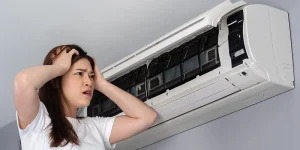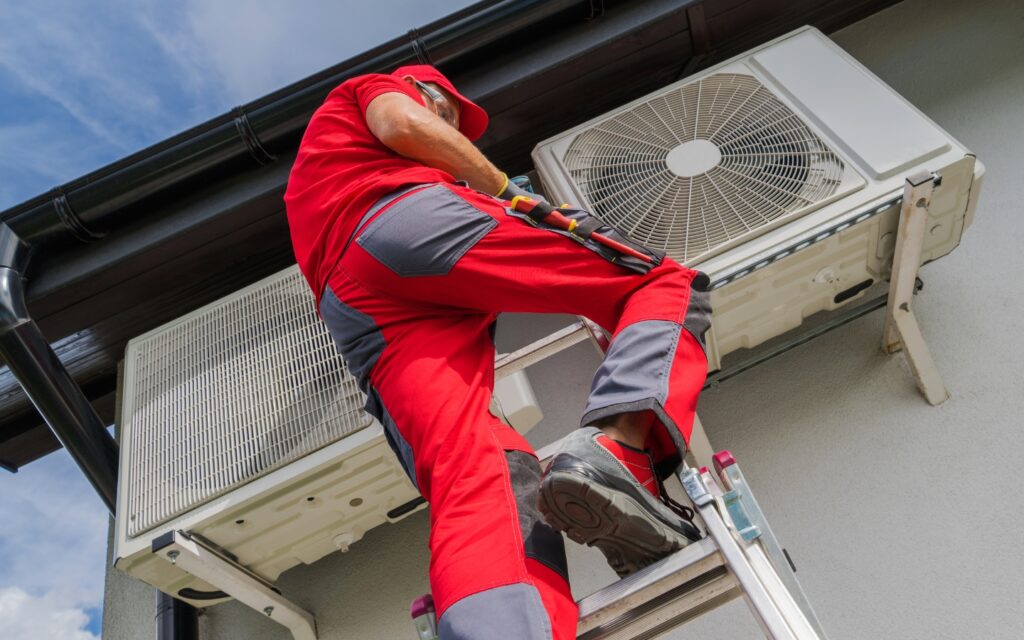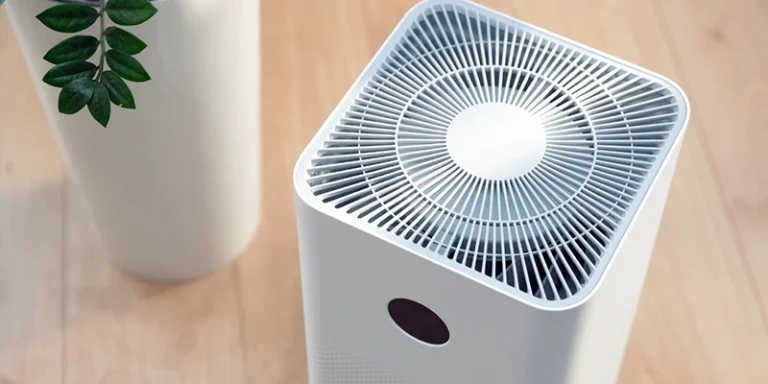When the summer heat hits its peak, the last thing anyone wants is an air conditioner that’s sputtering or failing to keep its cool. This is where the significance of routine AC maintenance, particularly an AC tune-up, comes into play. So, what does an AC tune-up mean, and why is it crucial for the optimal functioning of your cooling system?
In the domain of air conditioning, a tune-up is more than just a routine check; it’s a proactive measure aimed at ensuring your AC system performs at its best when you need it the most.
In this comprehensive guide, we will explore the details of what an AC tune-up entails, examining each vital component and process that contributes to the efficiency and longevity of your cooling apparatus.
As we navigate through the inner workings of an AC tune-up, we’ll shed light on not only the technical aspects handled by HVAC (Heating, Ventilation, and Air Conditioning) professionals but also provide insights for you on how you can contribute to the well-being of your air conditioning units.
So, buckle up as we unravel the mystery behind AC tune-ups and discover the key elements that make them a cornerstone of a cool and comfortable indoor environment.
The Importance of AC Maintenance
The comfort an air conditioning system provides is often taken for granted until it malfunctions on a scorching summer day. This is where the importance of regular AC maintenance, and more specifically, the tune-up, becomes evident. Beyond just comfort, there are substantial reasons to invest in the well-being of your cooling system.
If you are wondering why your Air Conditioner needs a tune up, read our guide here for more information!
Routine AC maintenance is synonymous with energy efficiency. An efficiently running AC unit consumes less electricity, directly translating to reduced energy bills.
Neglecting regular maintenance can lead to a gradual decline in efficiency, forcing the system to work harder to achieve the desired temperature.
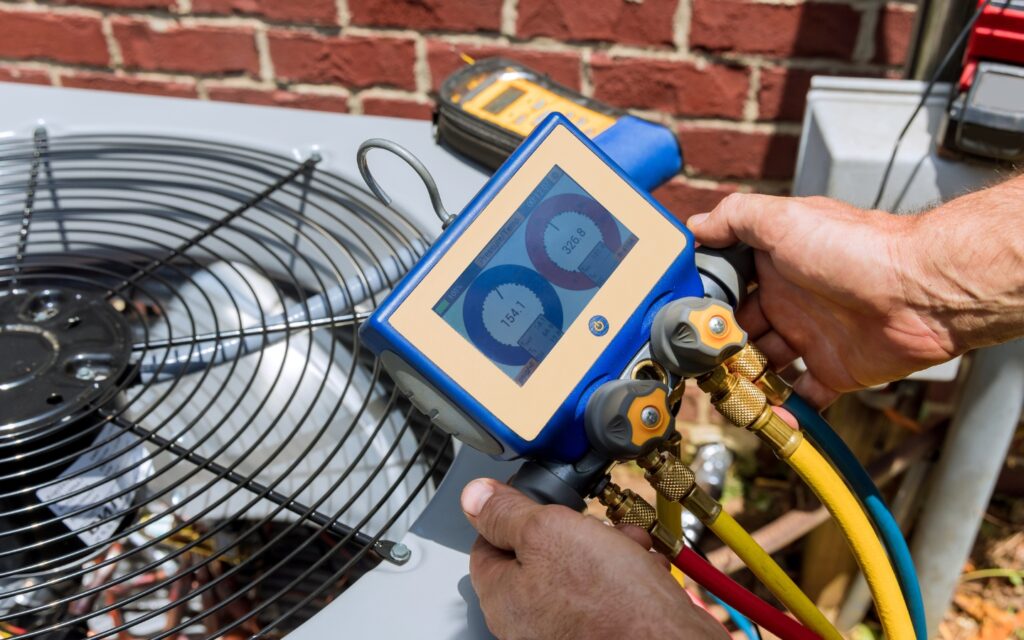
Moreover, the longevity of your air conditioner is closely tied to how well it’s maintained. A neglected system is prone to premature wear and tear, ultimately shortening its lifespan. Replacing an entire AC unit is a considerable expense that can be postponed with regular tune-ups.
In the grand scheme of expenses, regular maintenance is a fraction of the cost when compared to major repairs or replacements. Imagine the inconvenience of facing a sudden breakdown during the peak of summer – not only will you endure discomfort, but emergency repairs or replacements can be financially burdensome.
To ensure your AC system operates at peak performance and to avoid the pitfalls of neglect, embracing regular maintenance, including comprehensive tune-ups, is a smart investment. It’s not just about cooling your space; it’s about doing so efficiently, cost-effectively, and for the long haul.
Overview of an AC Tune-Up
Now that you have understood the significance of AC maintenance, let’s zoom in on what an AC tune-up exactly involves.
An AC tune-up is a proactive and systematic inspection, adjustment, and cleaning of the various components of your air conditioning system.
The primary goal is to ensure that each element operates efficiently and harmoniously to deliver optimal performance.
Ideally conducted annually, an AC tune-up involves a comprehensive evaluation of critical components. This includes inspecting and cleaning the evaporator and condenser coils, checking the refrigerant levels, testing system controls, and tightening electrical connections.
Additionally, a thorough examination of the thermostat, lubrication of moving parts, and inspection of ductwork are integral to the process.
Professional HVAC technicians are trained to identify potential issues before they escalate into major problems. This preemptive approach not only prevents unexpected breakdowns but also contributes to energy efficiency, saving you money on your utility bills.
An AC tune-up is not a one-size-fits-all process; it’s a service that takes into account the specific needs of your AC unit.
A tune-up is essential to ensure that your cooling system operates at its best whether you have a central air conditioning system, a ductless mini-split, or a window unit.
Important aspects during an AC Tune-Up
Inspection and Cleaning
The foundation of any effective AC tune-up lies in the inspection and cleaning of crucial components. The evaporator and condenser coils, responsible for absorbing and releasing heat, are prone to accumulating dirt over time.
A professional technician meticulously inspects and cleans these coils, ensuring optimal heat exchange efficiency. Additionally, the air filter, a vital element in maintaining air quality, is examined and replaced or cleaned as needed.
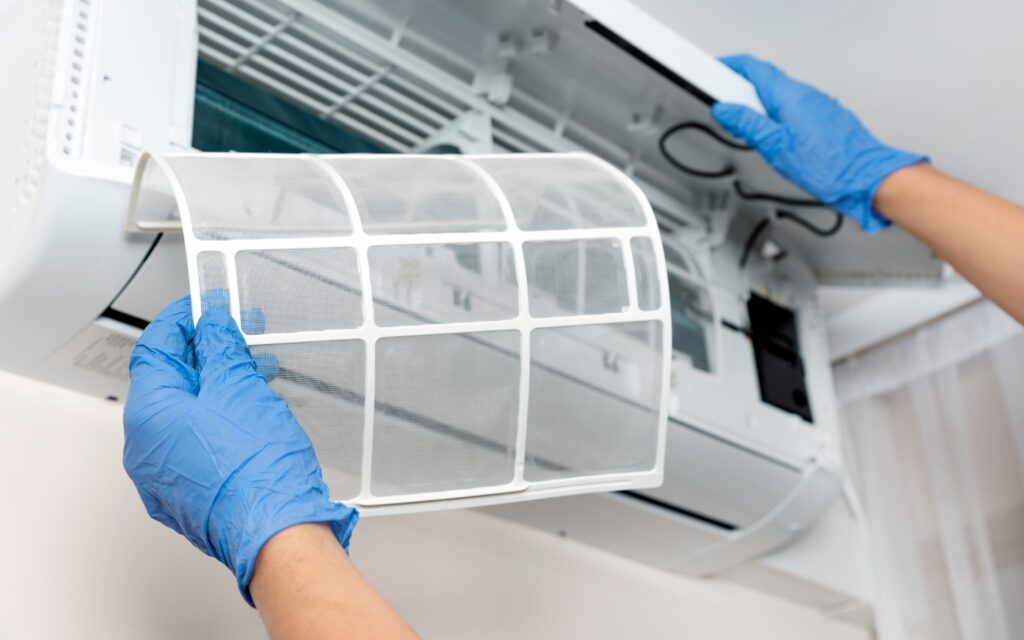
Refrigerant Check and Charge
The refrigerant is the lifeblood of your air conditioning system, responsible for absorbing and releasing heat to cool the air. During a tune-up, technicians check the refrigerant levels and recharge if necessary.
Adequate refrigerant levels are crucial for maintaining optimal cooling performance and preventing unnecessary strain on the compressor.
Checking and Adjusting Thermostat
A calibrated thermostat is key to maintaining a comfortable indoor temperature. Technicians check the thermostat for accuracy, making any necessary adjustments to ensure precise temperature control.
A well-calibrated thermostat not only enhances comfort but also contributes to energy efficiency by preventing overcooling or overheating.
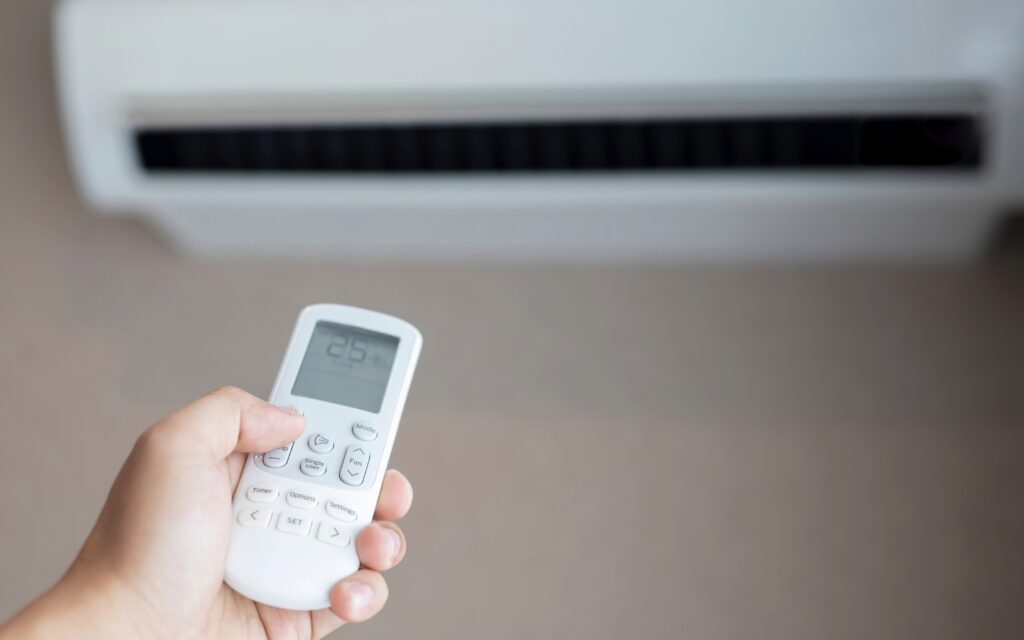
Inspecting and Tightening Electrical Components
Electrical components, including connections, capacitors, and relays, are inspected for signs of wear and tear. Loose or faulty connections can lead to electrical issues, compromising the efficiency and safety of your AC system.
Technicians tighten connections and replace any faulty components to prevent electrical problems that may result in breakdowns.
Checking Ductwork
The ductwork, an integral component of your air conditioning system, assumes a critical role in the seamless distribution of cooled air throughout the entirety of your living or working space.
As part of a meticulous AC tune-up, skilled technicians undertake a comprehensive examination of the ductwork, scrutinizing it for potential concerns such as leaks, blockages, or any other issues that might impede the smooth flow of air.
Detecting and promptly addressing such ductwork issues are paramount to ensuring the optimal efficiency of your entire AC system.
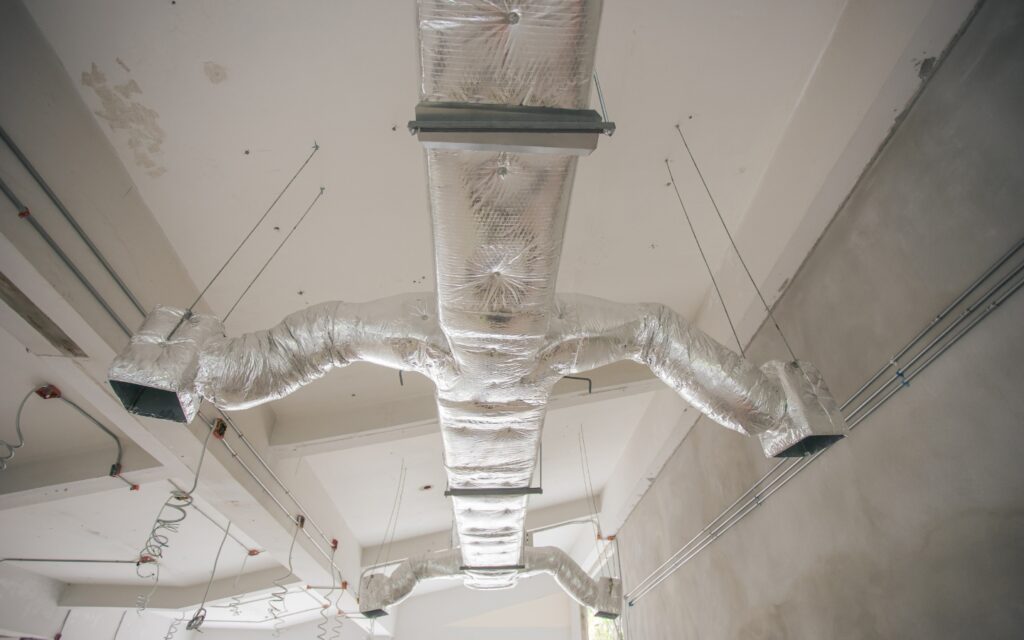
Testing System Controls
During an AC tune-up, a thorough assessment is conducted on crucial system controls, encompassing the starting cycle, operation sequence, and shut-off sequence.
This examination aims to verify the accuracy and functionality of these controls. The starting cycle, responsible for initiating the cooling process, is scrutinized to ensure a prompt and effective commencement.
Lubricating Moving Parts
Moving components within your air conditioning system, such as fan blades and motors, necessitate meticulous care to operate optimally. Proper lubrication is a vital aspect of maintenance, aiming to reduce friction and prevent wear and tear on these essential parts.
As part of the comprehensive AC tune-up process, skilled technicians apply specialized lubricants to these moving elements, ensuring they operate seamlessly and efficiently.
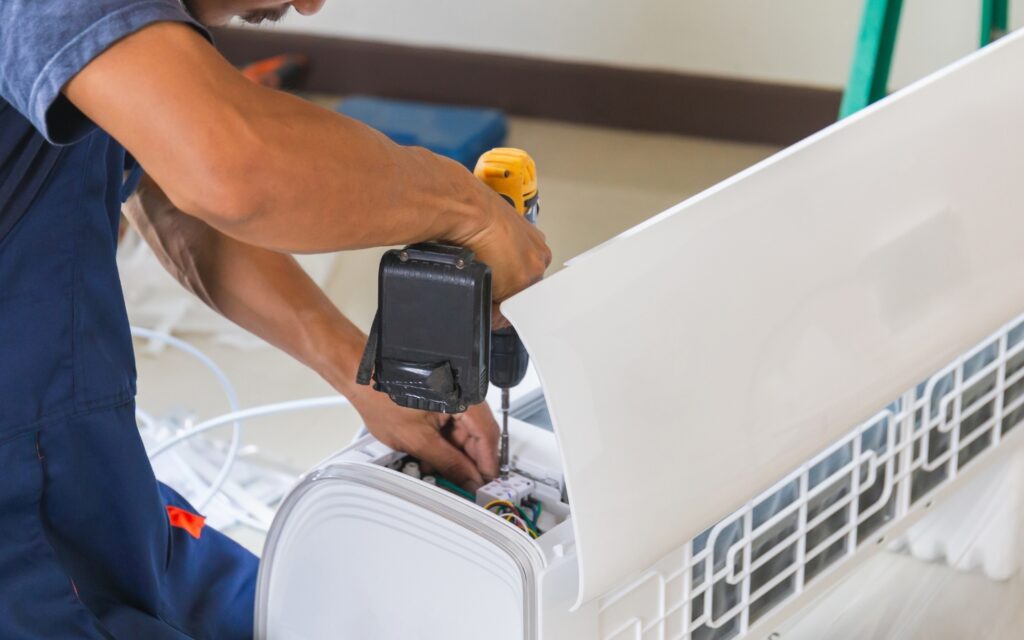
5 Common Signs That Indicate the Need for an AC Tune-Up
Recognizing the signs that your air conditioner is due for a tune-up is crucial for proactive maintenance.
Reduced Cooling Efficiency
One of the most noticeable signs is a decline in the cooling efficiency of your AC system. If you find that your home is not reaching the desired temperature despite the unit running continuously, it could indicate issues such as low refrigerant levels, a clogged filter, or inefficient components. A professional tune-up can identify and address these issues, restoring your AC system’s ability to cool your space effectively.
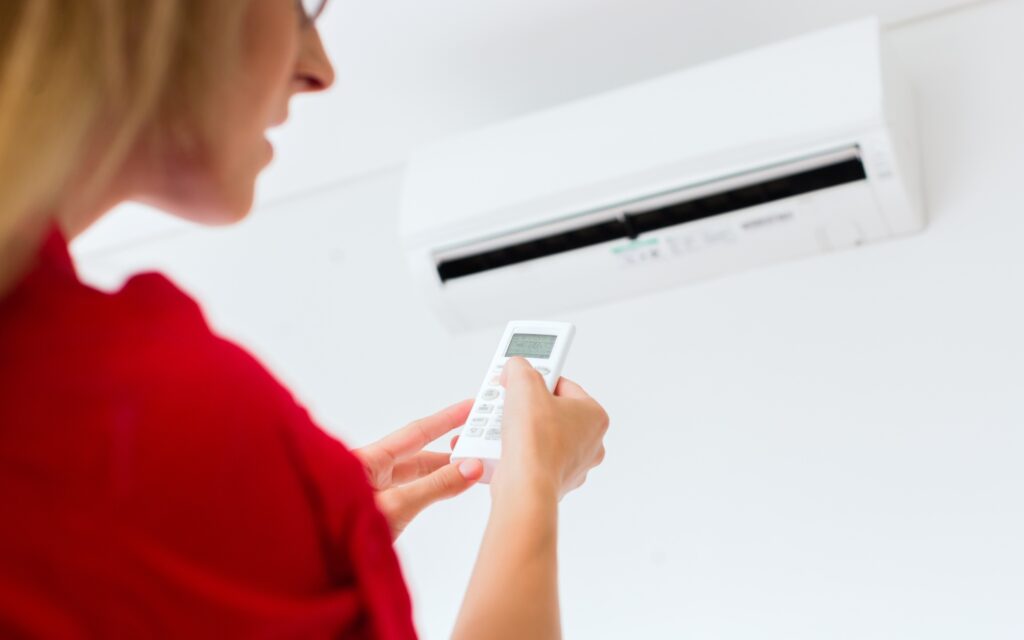
Strange Noises
Unusual noises emanating from your air conditioner, such as rattling, buzzing, or grinding sounds, should not be ignored. These noises can be indicative of various problems, including loose components, damaged fan blades, or issues with the compressor.
A timely tune-up can diagnose the source of the noises and prevent further damage, ensuring your AC operates quietly and efficiently.
Uneven Airflow
Inconsistent airflow or hot spots in different areas of your home suggest a problem with the distribution of cooled air. This could be due to issues with the ductwork, a malfunctioning blower, or blocked vents.
An AC tune-up includes a thorough inspection of the entire system, allowing technicians to identify and rectify any issues affecting the even distribution of air.
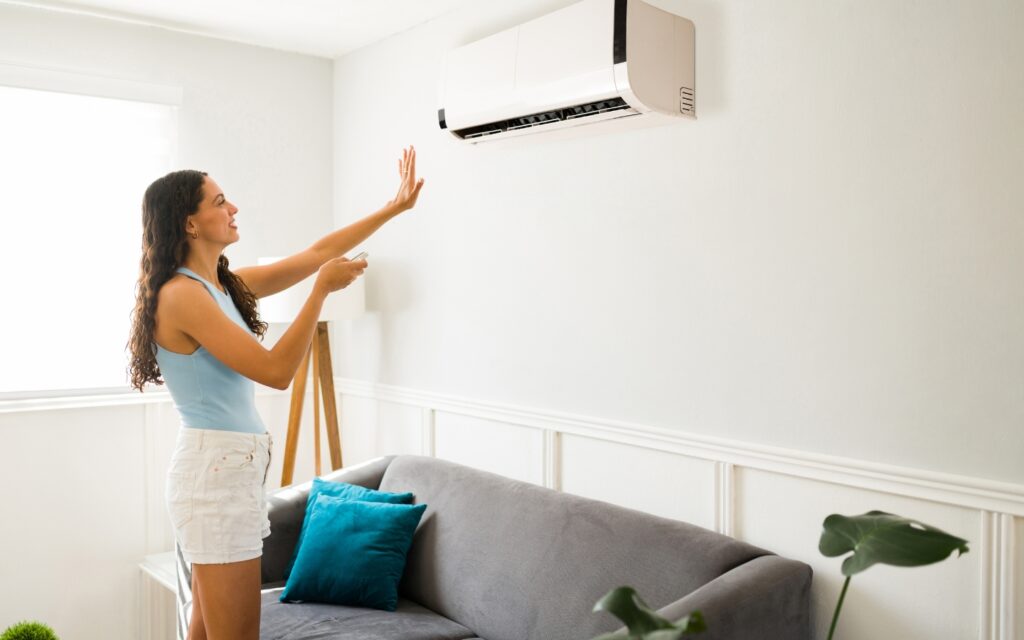
Unpleasant Odors
Foul or musty odors emitted from your AC vents can be a sign of mold or bacterial growth within the system. This not only affects the air quality but can also pose health risks.
During a tune-up, technicians can clean the system, replace filters, and address any microbial growth, ensuring that the air circulating in your home is fresh and clean.
Increased Energy Bills
A sudden spike in energy bills without a corresponding increase in usage could indicate an inefficient AC system.
Components such as dirty coils, clogged filters, or a malfunctioning thermostat can cause your unit to work harder, consuming more energy.
A tune-up focuses on optimizing the efficiency of these components, resulting in energy savings over time.
When you pay attention to these signs and promptly schedule an AC tune-up, you can address issues before they escalate, ensuring your cooling system operates efficiently and reliably.

DIY Maintenance Tips for an AC
While a professional AC tune-up is essential for in-depth inspection and maintenance, there are some simple steps you can take to contribute to the well-being of your air conditioning units.
Regular Air Filter Maintenance
One of the easiest and most impactful DIY tasks is regularly changing or cleaning the air filter. A clogged or dirty filter restricts airflow, making your AC system work harder and reducing its efficiency.
Check the manufacturer’s recommendations and replace or clean the filter accordingly, typically every one to three months.
Clearing Debris around the Outdoor Unit
Ensure the outdoor unit, including the condenser coils and the surrounding area, is free from debris such as leaves, branches, or dirt.
A clean and unobstructed unit allows for better heat exchange, preventing the system from overworking and improving overall efficiency.
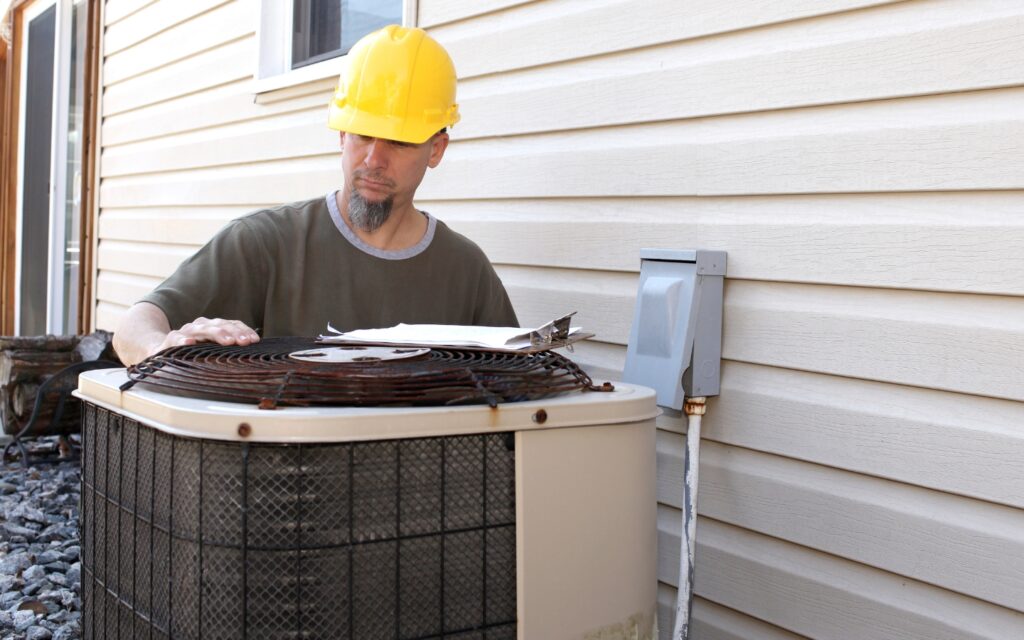
Unobstructed Airflow
Keep indoor vents and registers unblocked by furniture or curtains to allow for proper airflow. Restricted airflow can lead to uneven cooling and strain on the system. Ensure that both the supply and return vents are open and unobstructed for optimal performance.
Monitoring Thermostat Settings
Regularly checking and calibrating the thermostat settings to ensure accurate temperature readings. Consider upgrading to a programmable thermostat to optimize cooling schedules, reducing energy consumption when cooling is unnecessary.
It is important to note that while these DIY efforts contribute to the efficiency and longevity of your AC system, it’s important to note that they should complement, not replace, scheduled professional tune-ups.
Professional technicians have the expertise and tools to conduct a thorough examination, addressing potential issues that may not be evident through simple DIY maintenance.
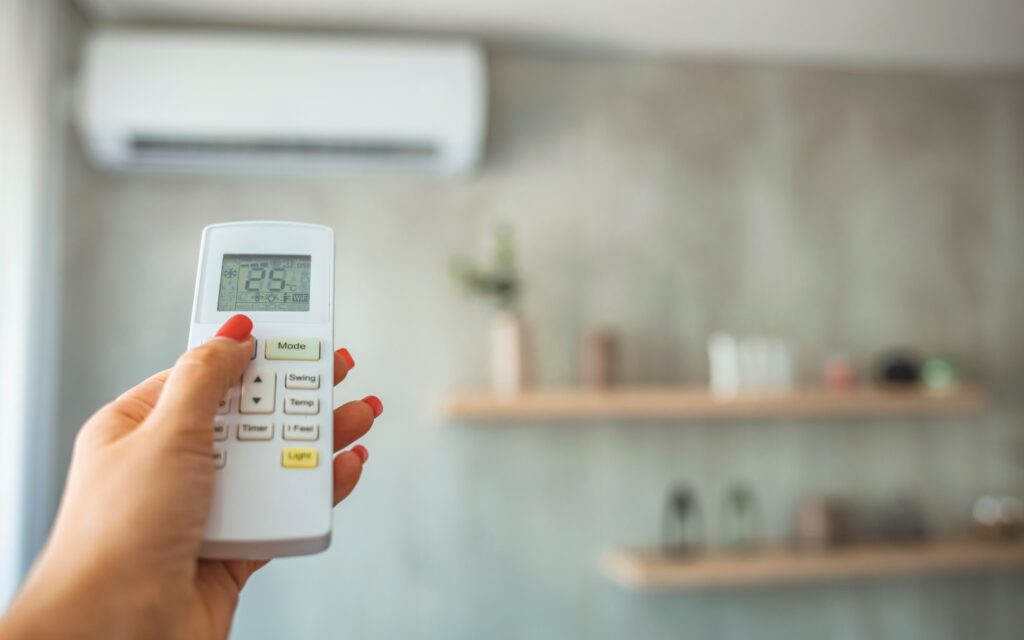
Frequently Asked Questions
How often should I schedule an AC tune-up?
It is generally recommended to schedule an AC tune-up annually. Regular maintenance ensures that the system operates at peak efficiency, saving energy and preventing major issues that can arise with neglected units. The DIY maintenance tips is an advantage for you.
What components are typically checked during an AC tune-up?
HVAC professionals inspect and clean components such as coils, filters, refrigerant levels, thermostat, electrical connections, ductwork, and moving parts. This thorough examination addresses potential issues and optimizes the performance of the air conditioning system.
How can regular AC tune-ups save on energy costs?
Regular tune-ups optimize the efficiency of the AC system, ensuring it operates at its best. This leads to reduced energy consumption, resulting in lower utility bills and long-term cost savings.
Conclusion - What Does an AC Tune-Up Include?
Certainly, the importance of an AC tune-up extends beyond a routine service. It represents a proactive investment in the well-being of your air conditioning system.
By working out the complications of this maintenance process, you can gain insight into the holistic approach taken by HVAC professionals nearby to enhance performance and extend the life of their units.
A tune-up ensures your AC operates at its best when you need it the most addressing potential issues before they become major problems.
It’s a strategic endeavor aimed at optimizing efficiency, reducing energy bills, and fostering a consistently cool and comfortable indoor environment.
Moreover, recognizing common signs that indicate the need for a tune-up empowers you to act proactively, preventing disruptions and costly repairs.
While DIY efforts such as changing air filters and maintaining unobstructed airflow contribute to system health, they should be regarded as complementary to, not substitutes for, scheduled professional tune-ups.
Ultimately, understanding the significance of each aspect of the tune-up process allows you to make informed decisions, fostering a proactive approach to maintaining a reliable, efficient, and enduring air conditioning system.

